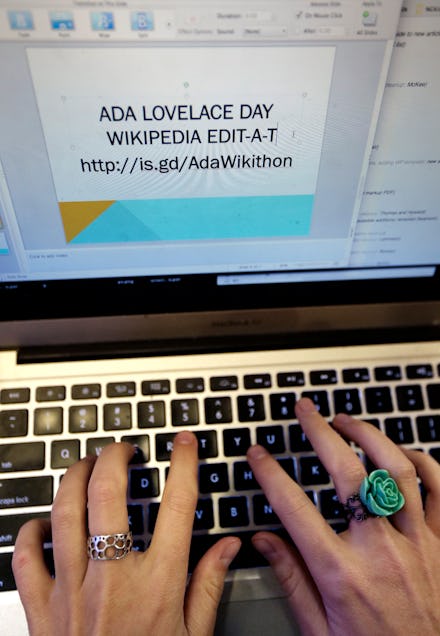Tech Needs Women, But Women Don't Necessarily Need Tech

If we know anything, we know we need more women in tech.
Goals range from how we can design programs to help women become more interested to what tech companies can do to "attract" more women. Do a quick search for "women in tech" and you’ll find hundreds of thousands of varying opinions on the best ways to improve the number of women in STEM fields. However, while the numbers are far from ideal, we need to stop measuring the success of women by how well they do in male-dominated fields such as computer science. While women who have succeeded in tech-related fields should be respected for their work, I have noticed a recent shift towards singular praise of female success which almost devalues women’s success in other fields.
It seems we've become so focused on breaking the next frontier and changing the gender ratio in technological fields that we define achievement based on this metric alone.
There is an ideal of a "tech superwoman" — someone who, despite having few role models in the field, has broken into an industry that is infamous for its rampant sexism both at the schooling and professional levels. This miracle woman has earned the title of "trailblazer" because she is a pioneer of a field yet to be "conquered" by women.
But that is not reason enough to urge girls to study computer science or other tech subjects. It should not be encouraged merely for the glitz of making a top "women in tech" list or being at the forefront of an industry that undoubtedly does need a shift in demographics. Why have we stopped paying attention to women in other fields? Why is there overwhelming coverage of why we should all enter tech? Why is no one else being called a pioneer of their field? It comes down to the entrenched, sexist idea that if you are a young, able, and intelligent woman you need to go "where the boys are," and that a change in numbers alone is what measures success for women. It’s also rooted in the logic that the success of women lies in power, influence, and dollar amounts.
People of all genders in the social sciences and humanities has been mocked with that old joke: "I’ll take that with a side of fries, please." I’ve often been pushed to wonder whether I should have majored in computer science or engineering for the sake of job security. Those of us who pursue these fields are stigmatized for not being economic assets.
With brilliant female tech industry successes like Sheryl Sandberg proclaiming that girls "often underestimate their own abilities" thereby holding them back from "achieving their potential," those of us who want to achieve that potential in different fields are erased from the new reality: succeeding in only the most quantitatively challenging jobs is an accomplishment worth celebrating, and anything else falls short.
What women really need is to be able to make choices that serve their own interests; we do not need to be "attracted" by companies or "pushed" into fields. We also do not need to serve as numbers, there to tilt the statistics of domains that "need" us. I want young women to enter college or whatever training they choose without the pressure of making a move that is or isn’t a boon for womankind. She shouldn’t be hoarded with mixed messages about what lines of work are good or innovative, or make her a trailblazer.
At the end of the day, if you contribute new ideas to any discipline, then you are breaking new ground — both for women and for society.